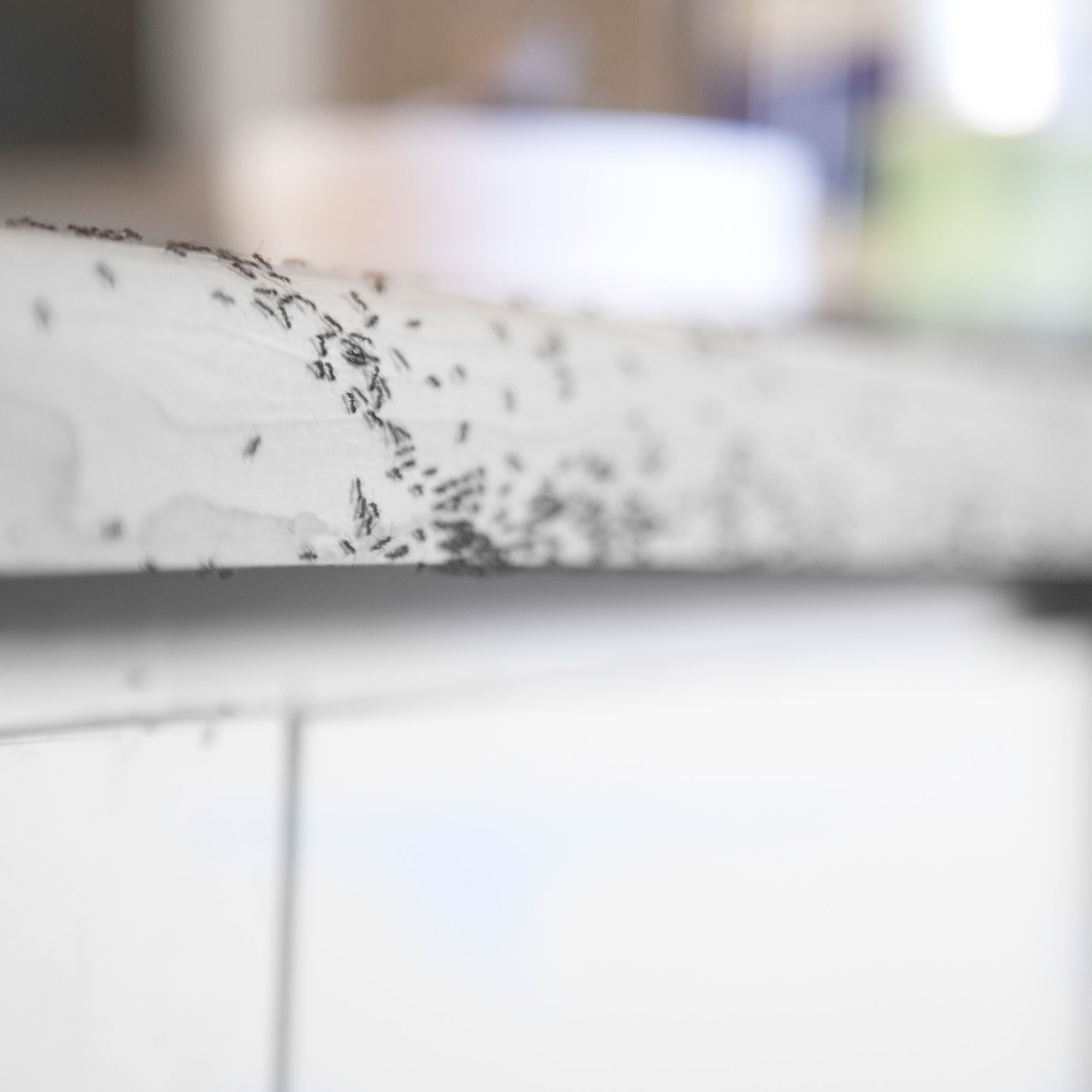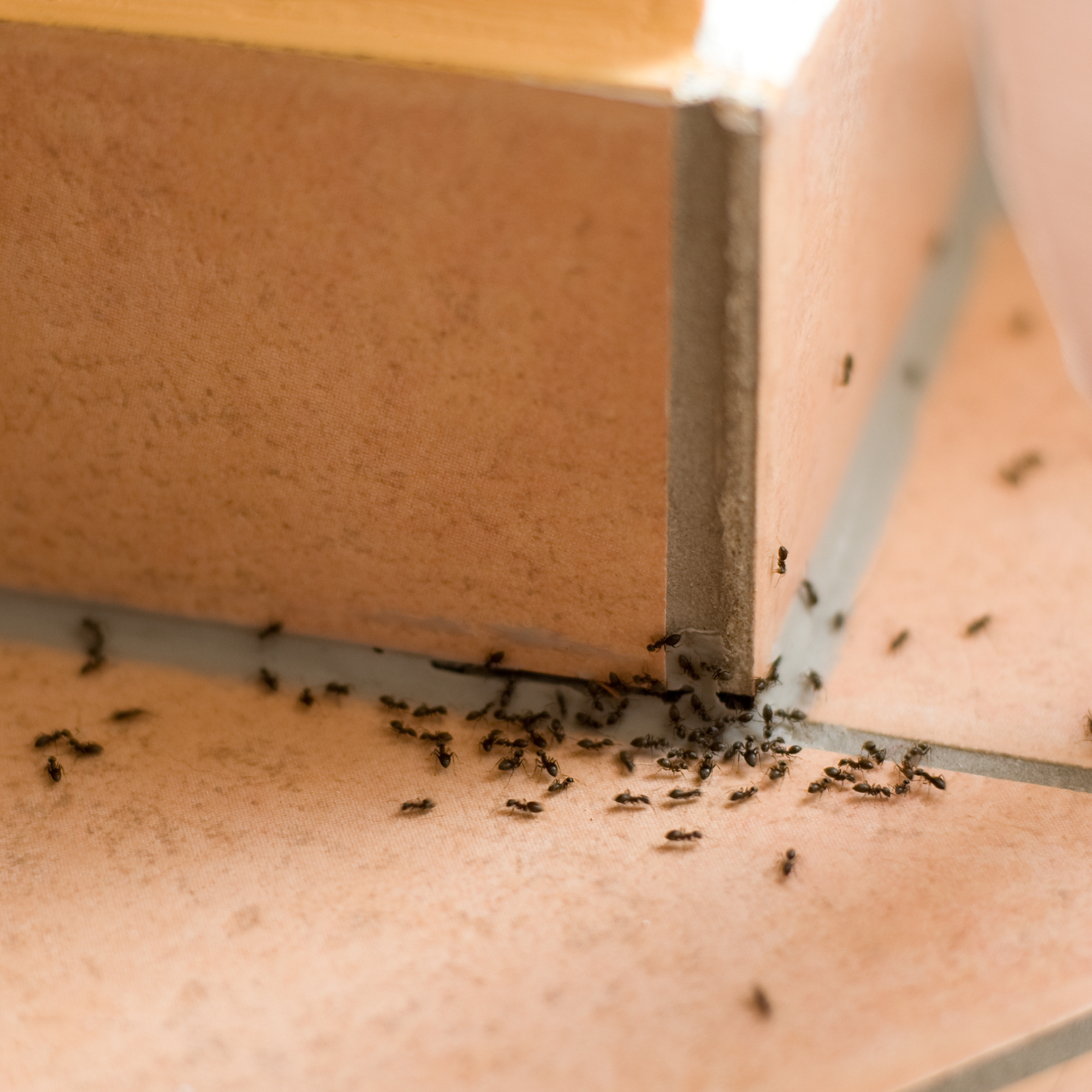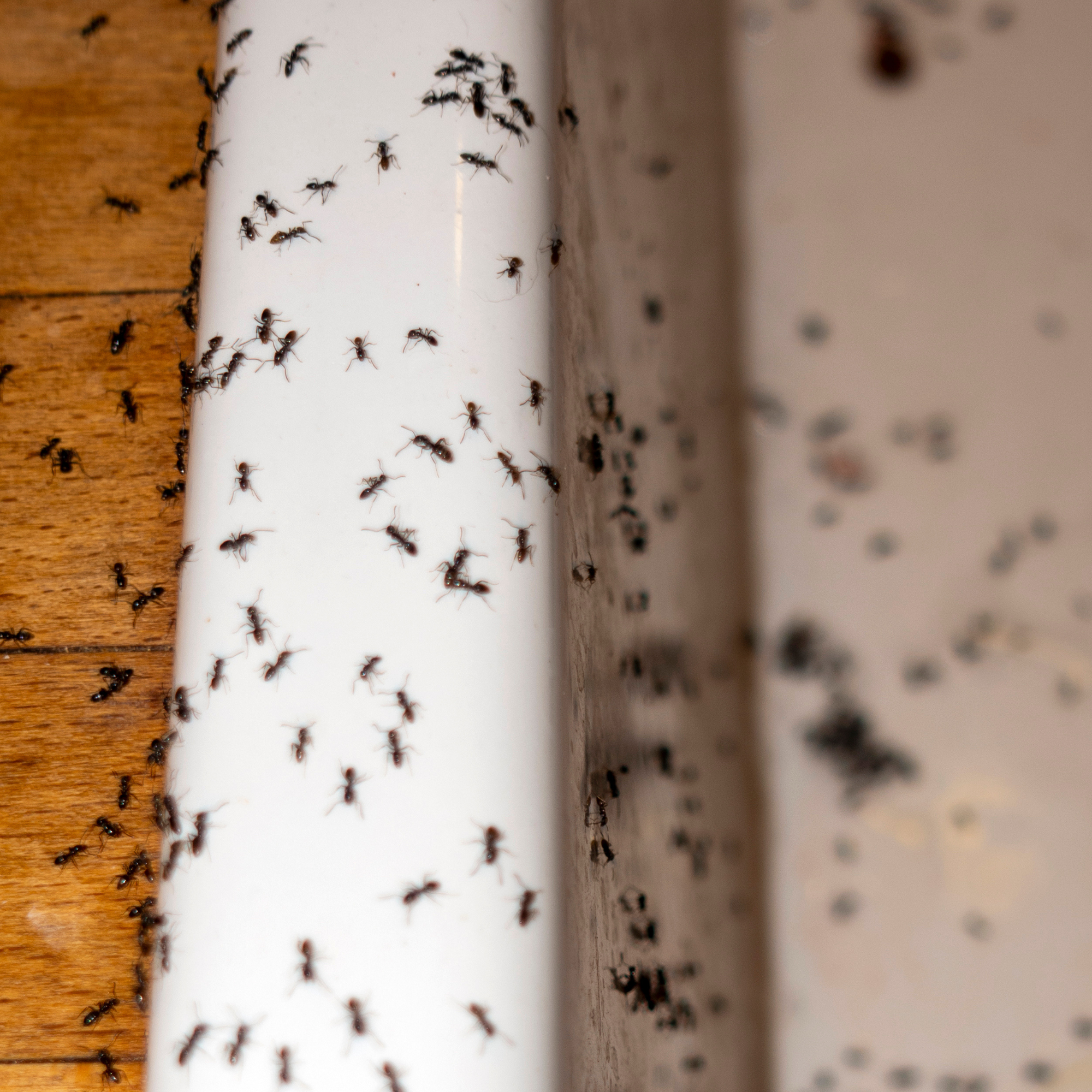
Ant infestations arise when the weather warms up, so there’s no doubt you’re looking for methods to end your infestation. If you’ve been wondering ‘does salt kill ants?’ you’d be right in thinking that it can - but pest experts say this is only a short-term fix.
Ants can be a real nuisance and even pose a hygiene risk, which obviously isn’t ideal considering ants are most commonly found in kitchens and culinary spaces, so it’s no surprise you’re looking for how to get rid of ants.
It can be tempting to reach for the salt when you spot a line of these pests scurrying around your kitchen, but experts warn that using salt to kill ants will not remove the infestation or kill the ant’s nest. This is everything you need to know.

How can salt kill ants
Salt can kill ants via dehydration if they come into contact with it, which means ants are most likely to avoid salted areas, making salt more of a deterrent than a killer.
‘Salt, especially table salt or rock salt, works by a process of osmosis. When ants come into direct contact with it, especially if it's used in a moist solution like a saltwater spray, it can pull the moisture from their bodies and dehydrate them to death,' explains Tony King, pest control expert and owner of The Pied Piper.
'But this is quite a high dose and direct contact, and most ants will avoid highly salted areas altogether. So it might kill a few of them, but it won't do much in the way of killing the colony or eradicating the source of the problem.'

Should you use salt to kill ants?
The short answer is no, there are better methods of getting rid of ants than using salt. However, you can still you salt as a detterent to keep ants out of your kitchen.
‘Sprinkling salt across entry points, such as near windowsills, doors, or cracks, can discourage ants from crossing that threshold, simply because they do not particularly enjoy the texture or simply because they detect the difference in moisture,’ says Tony.
‘But then again, it's usually short-term. Ants are incredibly clever and will often find other means of going around the salt, especially if there is something interesting ahead. Salt also doesn’t interfere with the pheromone trails ants use to navigate, which means the rest of the colony won’t necessarily be deterred from following the same paths.’

There are better natural detterents such as cayenne pepper, mint and talcom powder as ants have a stronger reaction to these smells and they can disrupt the ant’s scent trail.
‘From my point of view, too much salt can hurt plants and soil health, so it should be used with caution. As for whether salt is humane, it entails a slow death by dehydration, which is not generally held to be either a quick or painless way to go,’ says Matthew Wilson, Pest Control Expert, Gardener and CEO of Handy Gardeners.
‘To control ants without resorting to chemicals, my strategy is to use baits and repellents that are both effective and humane. Using a salt solution in conjunction with these applications, plus good garden hygiene, and entry hole sealing, provides a better and longer-lasting solution than salt alone.’
Get rid of ants
If you ant infestation has gotten out of control these are some last resort options you can turn to.
This works on indoor and outdoor hard surfaces and is a fast-acting last-resort insecticide for when you need a quick fix.







